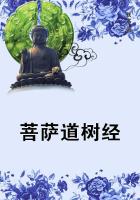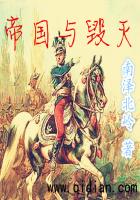His adherence to his master's point of view is strikingly shown by the fact that he accepts (at least if he is the author of the De Regimine Principum )(2)the Aristotelian theory of slavery,though by the action of the forces of his own time the lastrelics of that institution were being eliminated from European society.
This great change --the enfranchisement of the working classes --was the most important practical outcome of the MiddleAges.The first step in this movement was the transformation of slavery,properly so called,into serfdom.The latter was,byits nature,a transitory condition.The serf was bound to the soil,had fixed domestic relations,and participated in thereligious life of the society;and the tendency of all his circumstances,as well as of the opinions and sentiments of the time,was in the direction of liberation.This issue was,indeed,not so speedily reached by the rural as by the urban workman.
Already in the second phase serfdom is abolished in the cities and towns,whilst agricultural serfdom does not anywheredisappear before the third.The latter revolution is attributed by Adam Smith to the operation of selfish interests,that of theproprietor on the one hand,who discovered the superior productiveness of cultivation by free tenants,and that of thesovereign on the other,who,jealous of the great lords,encouraged the encroachments of the villeins on their authority.Butthat the Church deserves a share of the merit seems beyond doubt --moral impulses,as often happens,conspiring withpolitical and economic motives.The serfs were treated best on the ecclesiastical estates,and the members of the priesthood,both by their doctrine and by their situation since the Northern conquests,were constituted patrons and guardians of theoppressed or subject classes.
Out of the liberation of the serfs rose the first lineaments of the hierarchical constitution of modern industry in the separationbetween the entrepreneurs and the workers.The personal enfranchisement of the latter,stimulating activity and developinginitiative,led to accumulations,which were further promoted by the establishment of order and good government by thecivic corporations which grew out of the enfranchisement.Thus an active capitalist class came into existence.It appearedfirst in commerce,the inhabitants of the trading cities importing expensive luxuries from foreign countries,or the improvedmanufactures of richer communities,for which the great proprietors gladly exchanged the raw produce of their lands.Inperforming the office of carriers,too,between different countries,these cities had an increasing field for commercialenterprise.At a later period,as Adam Smith has shown,commerce promoted the growth of manufactures,which were eitherproduced for foreign sale,or made from foreign materials,or imitated from the work of foreign artificers.But the firstimportant development of handicrafts in modern Europe belongs to the fourteenth and fifteenth centuries,and the rise ofmanufacturing entrepreneurs is not conspicuous within the Middle Ages properly so called.Agriculture,of course,lagsbehind;though the feudal lords tend to transform themselves into directors of agricultural enterprise,their habits andprejudices retard such a movement,and the advance of rural industry proceeds slowly.It does,however,proceed,partly bythe stimulation arising from the desire to procure the finer objects of manufacture imported from abroad or produced byincreased skill at home,partly by the expenditure on the land of capital amassed in the prosecution of urban industries.
Some of the trade corporations in the cities appear to have been of great antiquity,.but it was in the thirteenth century thatthey rose to importance by being legally recognised and regulated.These corporations have been much too absolutelycondemned by most of the economists,who insist on applying to the Middle Ages the ideas of the eighteenth and nineteenthcenturies.They were,it is true,unfitted for modern times,and it was necessary that they should disappear;their existenceindeed was quite unduly prolonged.But they were at first in several respects highly beneficial.They were a valuablerallying-point for the new industrial forces,which were strengthened by the rise of the esprit de corps which they fostered.
They improved technical skill by the precautions which were taken for the solidity and finished execution of the waresproduced in each locality,and it was with a view to the advancement of the industrial arts that St.Louis undertook thebetter organization of the trades of Paris.The corporations also encouraged good moral habits through the sort ofspontaneous surveillance which they exercised,and they tended to develop the social sentiment within the limits of eachprofession,in times when a larger public spirit could scarcely yet be looked for.(3)NOTES:
1.Roscher,Geschichte der N.O.in Deutschland ,pp.5,sqq.
2.On this question see Jourdain,Philosophie de S.Thomas ,vol.1,pp.141-9,and 400.
3.Further information on the Economic Literature of the Middle Ages will be found in H.Contzen,Geschichte derVolkswirthschaftlichen Literatur in Mittelalter (2d ed.1872),and V.Cusumano,Dell'Economia Politica nel Medio-evo (1876).See also W.J.Ashley,Introduction to English Economic History and Theory (1888),vol.i,chap.iii.















